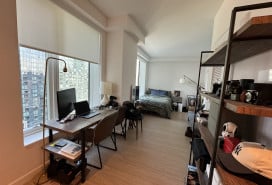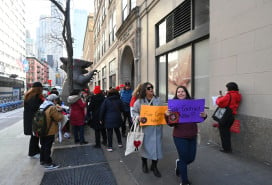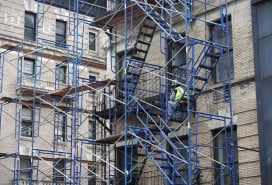Coming soon to a co-op/condo near you: Transparency and fair play?

Earlier this month, a fledgling organization of New York City apartment owners launched a modest website with an Olympic-sized ambition:
“The Alliance of Condo & Co-op Owners aims to help owners achieve fair play, transparency, and accountability in condo and co-op governance and operations.”
Intrigued, we caught up with the ACCO’s president--Larry Simms, a 59-year-old ex- condo board president who consults with co-ops and condos on fiscal planning, communications, governance and ‘problem avoidance’—to find out more about the grassroots movement and its tactics.
Q. How did the ACCO get started?
A. The steering committee, 10 of us, met through a couple of public forums for Manhattan co-op and condo owners organized earlier this year by State Senator Liz Krueger and later State Assemblyman Brian Kavanagh. They had been organized in response to a deluge of calls from owners asking questions--some simple, some not.
These were standing-room-only forums. The breadth and diversity of the audience was stunning, and there was a lot of pent-up curiosity and frustration.
Q. What were some of the problems people complained about?
A. There were people complaining about how long it takes for co-op approvals and talking about disclosure issues. More significantly there were a large number of questions about what to do when the rules are broken—where to turn. People had been to their board and their managing agents and in some cases the building accountant—and what was supposed to happen didn’t, and they had nowhere to turn.
A representative from the attorney general’s office basically confirmed that unless there are issues relating to conversion and new development, or fraud, they don’t get involved. You have to hire private counsel and face off in some cases against a building with a couple of hundred owners—you’re not only going against deep pockets but your own pockets including your proportional share of the board’s legal fees. Boards often have no incentive to settle.
Of course, there are many buildings that are well run and the majority of boards do a great job. But given the size of our market, there are a lot of cases where that doesn’t happen.
Q. How does ACCO hope to level the playing field?
A. We’ve been working with Senator Krueger’s office. We’re now working on 5 or 6 different legislative fronts. The one that is by far the most advanced is the idea and plan for a statewide ombudsman office. The Ombudsman Bill has been introduced in the Senate and the Assembly. It’s loosely modeled after Florida legislation that’s been wildly successful there.
The legislation is still in its formative stages. I’d like to believe that the emphasis will be on alternative dispute resolution, where the ombudsman has the power to require both sides to participate. The ombudsman’s office would be funded by a nominal tax of $6 per year per apartment.
The ACCO also has exciting plans of forums and outreach. We have one sponsor for a Queens forum, date to be determined. We're already working on a second forum there--Queens is a big place and there seems to be great demand--and also in Brooklyn. We've seen interest in Bronx/Riverdale, Westchester and Nassau County and will get to these areas as fast as we can.
Q. What’s the timetable for passing the Ombudsman Bill?
A. The Senate bill has already prompted a companion Assembly bill. Each is working its way through committee. we expect development and debate to continue, with a vote likely during the next legislative session, which begins in January.
I can’t believe the speed with which this has happened so far. We initially thought when the senate bill was first introduced, there would be a lot of established forces organizing against us, starting with real estate attorneys.
Q. What sort of resistance have you actually encountered?
A. A few board members have spoken out against the ombudsman bill, but we suspect they may not have actually read the draft text. The perception that the bill would somehow interfere with routine board governance is simply inaccurate.
One political candidate from Queens has objected on the grounds that owners simply can't afford the cost of setting up and running the ombudsman's office: $6 per apartment per year.
Q. How has your own background as a board member shaped your involvement here?
A. I was the president of my Manhattan condo board for four years and a board member for 7 or 8 years. It was a new building that we took over from the sponsor. It was pretty smooth. But I had a different experience before that. I know how frustrating it can be to live in a building where there is no transparency, and questionable expenditures are made, along with questionable decisions to defer expenditures.
I don’t want to be perceived as anti-board or anti-management, because I’m not. I don’t want to be too strident or offer quick solutions or promises we can’t keep. We want to offer better solutions which will make life more pleasant for people and lower their costs.
Right now, we want people to do three things: Join ACCO, recruit two or more other members, and write their own legislators in support of our top priority legislation, currently the Ombudsman Bill.
Related posts:
Fed-up condo owners flock to Midtown war room
4 neat ways to use an investigative lawyer in a co-op or condo
Inside story: My condo was corrupt
Approval, schmoovel! Renovation perks for board members

























